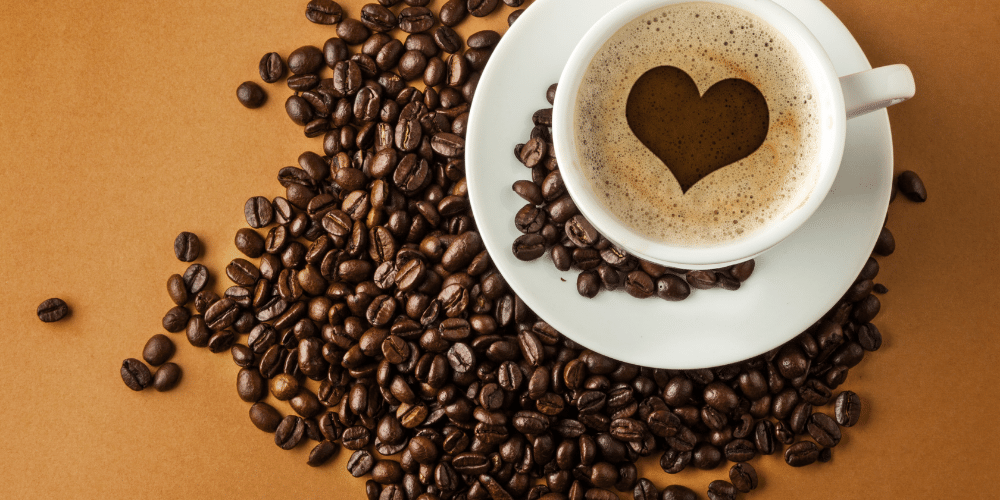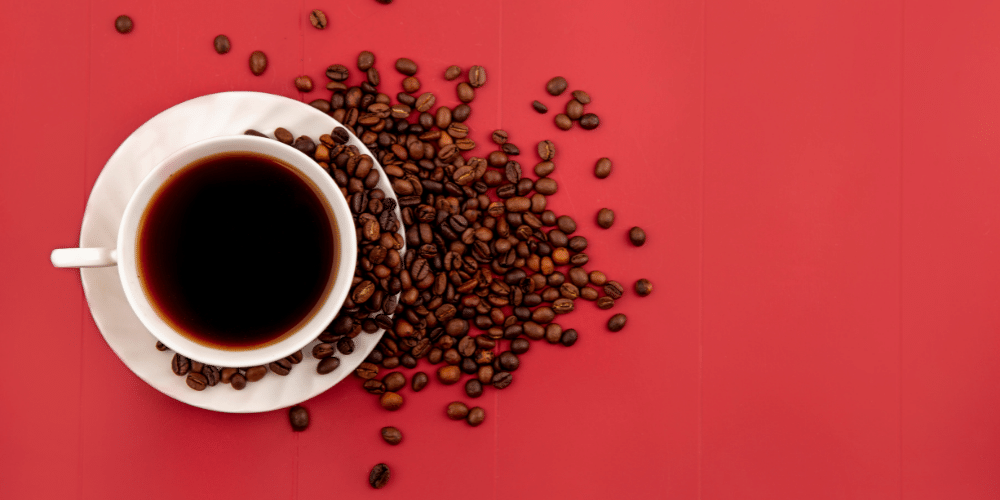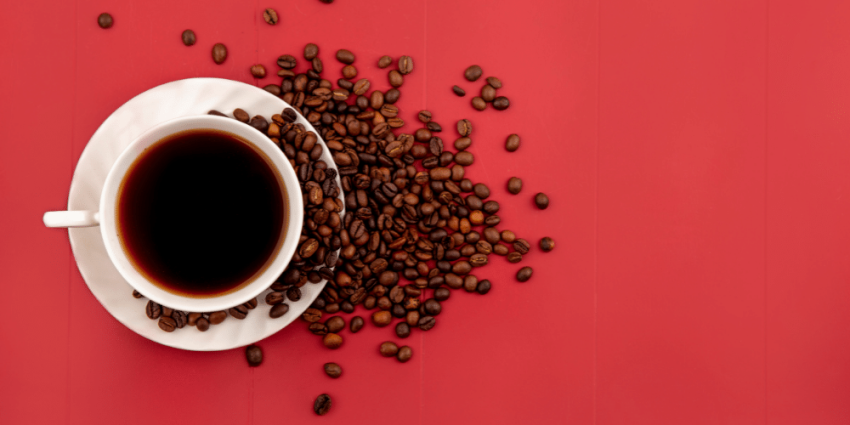We all know that caffeine can give us a much-needed boost of energy when we’re feeling tired. But did you know that it can also have positive effects on mental health? Recent studies have shown that caffeine can actually improve focus and concentration, as well as reduce anxiety and depression. So if you’re struggling with your mental health, it might be worth considering adding a cup of coffee or tea to your daily routine. Of course, like with anything, too much caffeine can also have negative effects. So it’s important to find the right balance for you. But if you’re looking for ways to improve your mental health, caffeine could be a good place to start.
The benefits of caffeine for mental health
Caffeine is a stimulant that occurs naturally in coffee, tea, and cocoa beans. It’s also added to some sodas, energy drinks, and over-the-counter medications. Caffeine can have both positive and negative effects on your health.
In small doses, caffeine can make you feel more alert and improve your mood. It can also help you focus better and increase your physical endurance. These effects are most noticeable in people who don’t regularly consume caffeine.
However, too much caffeine can lead to restlessness, anxiety, irritability, rapid heart rate, and trouble sleeping. These side effects are more common in people who are sensitive to caffeine or consume large amounts of it on a regular basis. If you’re pregnant or breastfeeding, you should also limit your caffeine intake to avoid potential health risks for your baby.
So overall, moderate amounts of caffeine can be beneficial for mental health by helping improve mood and focus. Just be careful not to overdo it!

The risks of caffeine for mental health
Caffeine is the most commonly consumed psychoactive substance in the world. It is found in coffee, tea, soft drinks, energy drinks, chocolate, and some medications. Caffeine can be a helpful tool to increase alertness and improve mental performance. However, it can also have negative effects on mental health.
Caffeine can cause anxiety and panic attacks. It can also worsen symptoms of anxiety disorders and other mental health conditions such as depression and schizophrenia. Caffeine can make it difficult to concentrate and can cause restlessness and sleep problems.
For people who are struggling with mental health issues, caffeine can make these problems worse. If you are experiencing any negative effects from caffeine, it is important to talk to your doctor or mental health professional about whether or not caffeine is right for you.
How to know if you’re consuming too much caffeine
Caffeine is a psychoactive drug that has stimulant effects on the brain. It is the world’s most widely consumed psychoactive substance, and it is legal and unregulated in most jurisdictions.
While caffeine consumption is safe for most people, it can be easy to consume too much caffeine without realizing it. There are a few signs that you may be consuming too much caffeine:
1. You feel jittery or anxious.
2. You can’t sleep or you wake up feeling exhausted.
3. You have trouble concentrating.
4. You feel your heart racing or your blood pressure is elevated.
5. You get headaches or other pains more frequently than usual.
If you experience any of these symptoms, it may be a good idea to cut back on your caffeine intake or switch to decaffeinated options
The Different Types of Caffeine
Caffeine is a central nervous system stimulant. It is the world’s most widely consumed psychoactive drug. Unlike many other psychoactive substances, it is legal and unregulated in nearly all jurisdictions. There are several different types of caffeine.
1) Coffee beans are the most common source of caffeine. Coffee has between 95-200mg of caffeine per 8oz cup.
2) Tea leaves are another common source of caffeine. Black tea has between 14-70mg of caffeine per 8oz cup, while green tea has between 24-45mg.
3) Guarana is a South American plant that contains high levels of caffeine. It is often used as an energy drink ingredient and can have up to 170mg of caffeine per 8oz cup.
4) Cacao beans are the primary ingredient in chocolate. Chocolate generally has low levels of caffeine, with around 6mg per 1oz serving.
5) Yerba mate is a South American herbal tea that contains high levels of caffeine. It can have up to 150mg of caffeine per 8oz cup
The Pros and Cons of Caffeine
Caffeine is a stimulant that can help to improve mental alertness and focus. However, there are also some potential downsides to caffeine consumption. These include increased anxiety levels, difficulty sleeping, and dependency.
Those who are seeking to improve their mental health may want to consider the pros and cons of caffeine before making any decisions. On the one hand, caffeine can help to improve alertness and focus. On the other hand, it can also lead to increased anxiety levels, difficulty sleeping, and dependency.
How Much Caffeine Should You Drink?
How Much Caffeine Should You Drink?
Caffeine is a stimulant that can improve mental alertness and focus. However, too much caffeine can cause jitters, anxiety, and insomnia. So how much caffeine should you drink to reap the benefits without experiencing negative side effects?
Most health experts recommend limiting caffeine intake to 400 mg per day. This equals about 4 cups of coffee. If you’re sensitive to caffeine, you may want to limit yourself to 2 cups or less. And if you’re pregnant, it’s best to limit your intake to 200 mg per day.
Of course, everyone is different and you may need to experiment a bit to find the right amount of caffeine for you. Start with small amounts and see how you feel. If you experience any negative side effects, cut back on your intake. And remember that caffeinated beverages can stay in your system for several hours, so it’s best to avoid drinking them late in the day.
The Best Time to Drink Caffeine
Caffeine is a stimulant that can improve mental alertness and focus. It can also help to reduce fatigue and increase energy levels. However, it is important to remember that caffeine is a drug and should be consumed in moderation.
The best time to drink caffeine depends on your individual sleep patterns and lifestyle. If you are someone who is sensitive to caffeine, you may want to avoid drinking it late in the day or close to bedtime. Otherwise, there is no set rule for when to drink caffeine. Some people find that they perform better if they have a cup of coffee first thing in the morning, while others prefer to wait until later in the day. Experiment with different times of day and see what works best for you.
Caffeine and mental health
Caffeine has long been associated with improving mental alertness and cognitive function. In recent years, however, there has been growing evidence to suggest that caffeine may also have a positive impact on mental health.
A number of studies have linked caffeine consumption with a lower risk of depression and suicide. For example, one large study found that people who drank four or more cups of coffee a day were 53% less likely to commit suicide than those who didn’t drink any coffee at all.
Caffeine may also help to protect against cognitive decline and dementia. One study found that people who drank three or more cups of coffee a day were 65% less likely to develop Alzheimer’s disease than those who didn’t drink any coffee.
So, what is it about caffeine that seems to have these positive effects on mental health? One theory is that caffeine helps to improve blood flow to the brain, which in turn can protect against cognitive decline. Caffeine may also help to reduce inflammation in the brain, which has been linked to depression and other mental health conditions.
Whatever the exact mechanisms, there is growing evidence that caffeine can be good for your mental health. So next time you reach for a cup of coffee, know that you may be doing your mind a favor as well as your body!
What is caffeine?
Caffeine is a psychoactive drug that acts as a stimulant. It can be found naturally in some foods and beverages, such as coffee, tea, and chocolate. Caffeine can also be consumed in supplements or added to energy drinks. It is the world’s most widely consumed psychoactive substance and it is legal in most countries.
Caffeine works by stimulating the central nervous system (CNS), which can lead to improved mental alertness and increased physical energy. It can also improve mood and cognitive function. However, too much caffeine can cause side effects such as anxiety, jitteriness, and insomnia.
We all know that feeling of needing an extra coffee to get through the day. For many of us, caffeine has become an essential part of our daily routine. But what exactly is this substance that we so rely on?
How does caffeine affect mental health?
Caffeine is a central nervous system stimulant. It has been shown to improve mental alertness and can help to combat fatigue. However, too much caffeine can have the opposite effect and lead to anxiety, irritability, and restlessness.
Caffeine affects mental health by increasing alertness and energy levels. It can also improve mood and cognitive function. However, too much caffeine can cause anxiety and other negative side effects.
Pros and cons of caffeine consumption
Caffeine is one of the most commonly consumed substances in the world, and for good reason. It can improve alertness, focus and concentration, and can also help to improve physical performance. However, there are also some potential downsides to caffeine consumption, which is why it’s important to be aware of both the pros and cons before making a decision about whether or not to consume it.
Pros:
-Can improve alertness
-Can improve focus and concentration
-Can help to improve physical performance
Cons:
-May cause anxiety and restlessness
-May cause insomnia
-May lead to dependence

Alternatives to caffeine
There are many alternatives to caffeine that can help improve mental health. Some of these include:
1. Exercise: Exercise has been shown to be an effective way to improve mental health. It can help to reduce stress, improve mood, and increase energy levels.
2. Herbal supplements: There are numerous herbal supplements that have been shown to be effective in improving mental health. Some of these include St. John’s Wort, ginkgo biloba, and omega-3 fatty acids.
3. Meditation: Meditation has been shown to be an effective way to reduce stress and improve mental well-being.
4. Sleep: Getting enough sleep is essential for good mental health. Lack of sleep can lead to fatigue, irritability, and poor concentration.
5. Healthy diet: Eating a healthy diet plays a vital role in maintaining good mental health. Foods that are rich in nutrients such as vitamins, minerals, and antioxidants can help protect the brain against damage and improve cognitive function.
Conclusion
Unfortunately, there is no easy answer when it comes to the question of whether or not caffeine is good for mental health. While some studies have shown that caffeine can improve mood and cognitive performance, other research suggests that it may contribute to anxiety and depression. Ultimately, the decision of whether or not to consume caffeine should be based on each individual’s unique needs and preferences. If you are struggling with mental health issues, it is always best to consult with a doctor or therapist before making any changes to your diet or lifestyle.










Leave a Reply